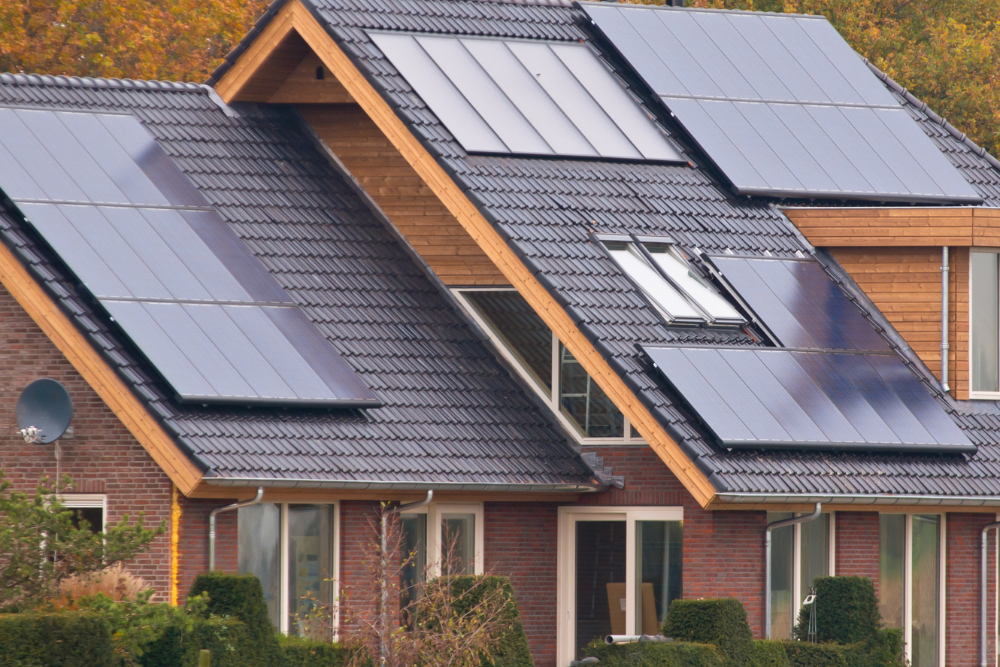As the world faces the challenges of climate change, transitioning to a renewable energy source has become not just a trend but a necessity. Arkansas, a state known for its beautiful natural landscapes, is stepping up to the plate in the fight against climate change by promoting green energy incentives to encourage both residents and businesses to embrace solar energy. If you’ve been considering installing solar panels in Arkansas, read on as we dive into the importance of going solar and provide you with a comprehensive overview of the available solar rebates and incentives.
Background: Arkansas’s Energy Landscape
Like many states, Arkansas has been reliant on traditional energy sources for decades. However, in recent years, there has been a growing recognition of the need to diversify the energy mix and reduce dependence on fossil fuels. This shift is driven by concerns about climate change, the desire to reduce greenhouse gas emissions, and the recognition of the economic potential of renewable energy sources, such as solar panels in Arkansas.
Ambitious targets have been set for renewable energy integration in Arkansas. To increase the share of renewable energy sources in the state’s energy mix, the state hopes to generate 50% of its electricity from renewable sources by 2030. By embracing solar energy, Arkansas can reduce its carbon footprint, create a sustainable energy future, and stimulate economic growth.
Benefits of Going Solar in Arkansas
Environmental Benefits
One of the primary benefits of going solar in Arkansas is the positive impact it has on the environment. Solar energy is a clean and renewable source of power that produces little to no emissions when it’s operating. By harnessing the power of the sun for energy, homeowners and businesses can significantly reduce their carbon footprint, which helps to fight climate change and preserve Arkansas’ natural beauty.
Economic Benefits
Going solar in Arkansas also has some major economic advantages. Both individuals and businesses can expect to see a significant decrease in their energy bills as they rely more on solar power and less on grid electricity. This not only leads to long-term savings but also an increase in property values, making solar panels in Arkansas a worthwhile investment. The growth of the solar industry in Arkansas also leads to job creation, which provides more employment opportunities and boosts the local economy.
Arkansas Solar Rebates & Incentives
 The existing solar rebates in Arkansas are currently limited to federal rebates, which are available until the end of 2032. However, to make the transition to solar panels in Arkansas more accessible and affordable, the state offers a couple of incentives in the form of financing programs. These tools can help to reduce the upfront costs of installing solar panels in Arkansas and enhance the return on investment.
The existing solar rebates in Arkansas are currently limited to federal rebates, which are available until the end of 2032. However, to make the transition to solar panels in Arkansas more accessible and affordable, the state offers a couple of incentives in the form of financing programs. These tools can help to reduce the upfront costs of installing solar panels in Arkansas and enhance the return on investment.
1. Property Assessed Clean Energy (PACE) Financing
PACE financing allows property owners to secure funding for solar panels in Arkansas or other energy efficiency enhancements. Property owners usually have to repay what they borrowed through property taxes over a predetermined period. It’s important to note that PACE financing accessibility varies across different cities and counties within the state of Arkansas. You contact your local city and county authorities to determine its availability and learn more about the application criteria for your area.
2. Rural Energy for America Program (REAP)
The REAP initiative provides financial support through loans and grants to facilitate the adoption of renewable energy systems and enhance energy efficiency. Both small businesses and agricultural producers who reside in rural areas can access funding through the REAP program, and grants for renewable systems range from $2,500 to $1 million.
Federal Solar Tax Credit
The Federal Solar Tax Credit (ITC) also exists for installing solar panels in Arkansas. The ITC offers up to a 30% tax credit for residential and commercial solar energy systems. This federal incentive can be combined with state incentives to further reduce the cost of solar panels in Arkansas.
It’s important to note that the ITC is only applicable to those who purchase their PV system outright through cash or solar loans. Additionally, your income must meet a certain threshold for the tax credit to have a significant impact. If you’re a tax-exempt entity, you could qualify for a direct payment.
Net Metering in Arkansas
Net metering is a critical component of switching to solar panels in Arkansas. It allows homeowners and businesses to earn credits for the excess energy they generate and feedback into the grid. Residential systems under 25 kilowatts are eligible to partake in this incentive, and the credits earned can offset the cost of grid electricity when the solar system isn’t producing electricity.
Arkansas has established net metering policies that make sure property owners are compensated fairly for excess energy generation. By participating in net metering programs, those who have solar panels in Arkansas are able to maximize their savings and make the most of their solar investment.
Steps to Take Advantage of Solar Rebates & Incentives
Taking advantage of solar incentives in Arkansas is a straightforward process, but it does require some careful planning and documentation. If you’re interested in Arkansas solar incentives for your solar panel installation, here are some steps to help you started:
1. Evaluate your solar potential
Determine the suitability of your property for solar panel installation by assessing different factors, such as sun exposure, shading, and available space.
2. Choose a qualified solar installer
Select a reputable installer who has experience with solar panels in Arkansas. They can help you design and install a solar system that meets your needs and complies with local regulations.
3. Understand incentive requirements
Take time to familiarize yourself with the eligibility requirements and application deadlines for Arkansas solar incentives.
4. Apply for permits
Be sure to obtain any necessary permits and approvals from local authorities prior to starting the solar panel installation process.
5. Install your solar system
Work with your solar panel installer to have the solar energy system installed on your property.
6. Complete applications for incentives
Submit the required documentation and applications for the solar incentives that you qualify for. Be sure to include all necessary supporting documents and follow the guidelines that are provided in the applications.
7. Claim tax credits
If you’re eligible for the Federal Investment Tax Credit, consult with a tax professional to ensure you claim the credit correctly when filing your taxes.
The Future of Solar Energy in Arkansas
The future of solar energy in Arkansas looks promising. As technology continues to advance and solar panel efficiency improves, solar energy is becoming a more desirable option for homeowners, businesses, and communities. The state’s commitment to integrating renewable energy, along with the availability of Arkansas solar incentives, will likely contribute to continued growth in the solar industry.
Conclusion
The transition to solar panels in Arkansas isn’t just a wise investment in your financial future; it’s also a contribution to a sustainable and eco-friendly state for years to come. By installing solar panels in Arkansas, you can reduce your carbon footprint, save on energy bills, and support the growth of the solar industry in the state.
We encourage all property owners to explore the available solar incentives in Arkansas, take advantage of them, and become part of the state’s green energy initiative.
If you’re interested in installing solar panels in Arkansas, we recommend reaching out to local solar installers to discuss solar options and receive quotes for your installation.
To learn more about solar energy adoption, we recommend visiting the Arkansas Department of Energy & Environment website.

